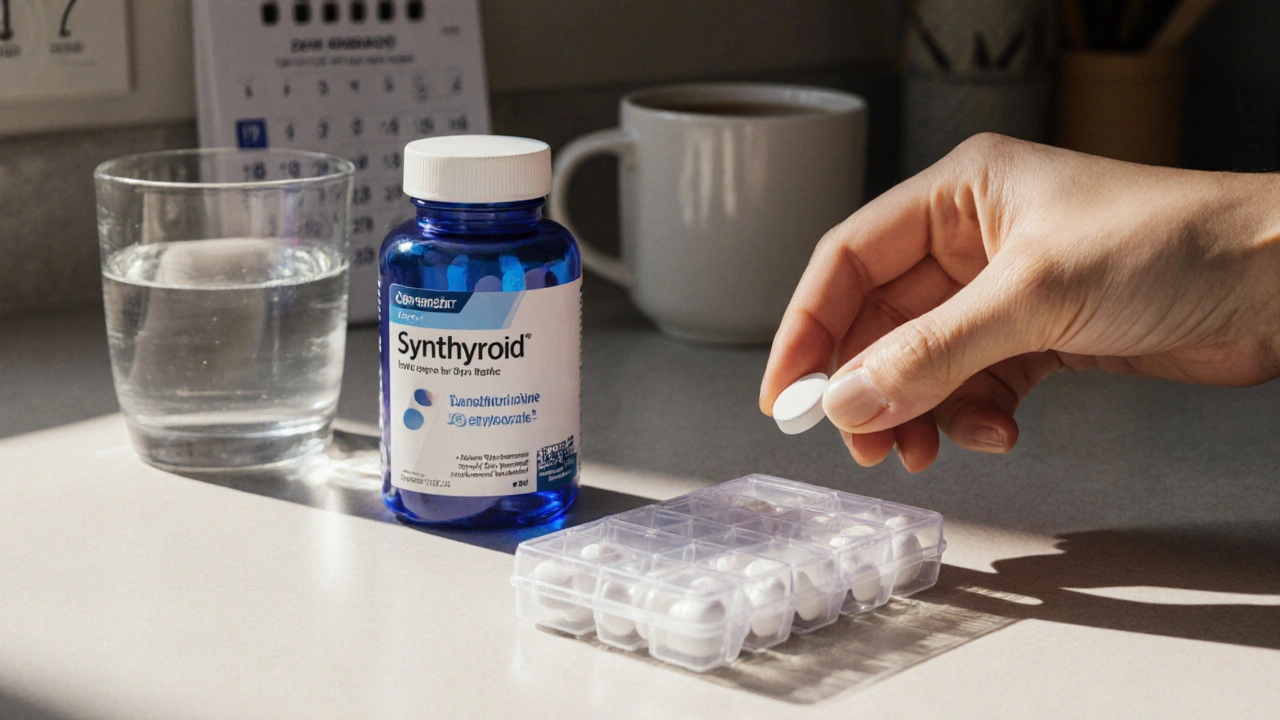Synthroid – Brand Name, Uses, and What You Need to Know
When working with Synthroid, the well‑known brand of synthetic thyroid hormone. Also called Levothyroxine, the generic form that matches Synthroid molecule‑for‑molecule, it’s prescribed to replace missing hormone in hypothyroidism, a condition where the thyroid gland doesn’t make enough thyroid hormone. The goal of thyroid hormone replacement, therapy that restores normal hormone levels is to bring the body’s metabolism back into balance. Knowing how these pieces fit together helps you manage dosing, avoid interactions, and track progress with a TSH test, the blood test that measures thyroid‑stimulating hormone to gauge treatment effectiveness.
Why Synthroid Matters and When to Choose It
Synthroid is popular because its formulation offers consistent absorption, which many patients and doctors trust for stable thyroid levels. The medication comes in several strengths, from 25 µg to 300 µg, allowing fine‑tuned dosing. Typical start‑up doses range from 25‑50 µg for older adults or those with heart disease, gradually increasing every 4‑6 weeks based on TSH results. Side effects usually signal an over‑ or under‑dose: symptoms like rapid heartbeat, anxiety, or weight loss point to excess hormone, whereas fatigue, weight gain, and cold intolerance suggest you might need more. Interactions are common; calcium supplements, iron, and certain antacids can cut absorption, so timing doses away from those products is key.
Many wonder whether the brand is worth the extra cost. Studies show that most patients achieve the same TSH targets with generic levothyroxine, but a small subset feels better on Synthroid—perhaps due to inert ingredients or how the body processes the tablet. If you’re switching, it’s wise to repeat TSH testing after a few weeks to confirm the new dose works. Some clinicians also consider alternative therapies like liothyronine (T3) for patients who don’t feel fully balanced on T4 alone, or natural desiccated thyroid (Armour Thyroid) for those seeking a mixed‑hormone approach.
Pregnant women need special attention because thyroid hormones are crucial for fetal development. Dosage often rises by 30% during the first trimester, and careful TSH monitoring protects both mother and baby. Likewise, seniors may start at lower doses to avoid cardiac strain. Lifestyle factors—diet, stress, and weight changes—can shift hormone needs, so regular check‑ups keep you in the sweet spot.
Armed with these basics, you’ll know what to look for when you read the articles below. From comparing Synthroid to its generic counterparts, to exploring alternative thyroid meds and understanding lab results, the collection gives practical tips, real‑world comparisons, and safety advice to help you stay on top of your thyroid health.
Synthroid (Levothyroxine) vs. Alternative Thyroid Medications: In‑Depth Comparison
Compare Synthroid with levothyroxine, Armour Thyroid, Cytomel, and combination therapy. Learn pros, cons, costs, and how to choose the right thyroid medication.
Read More
